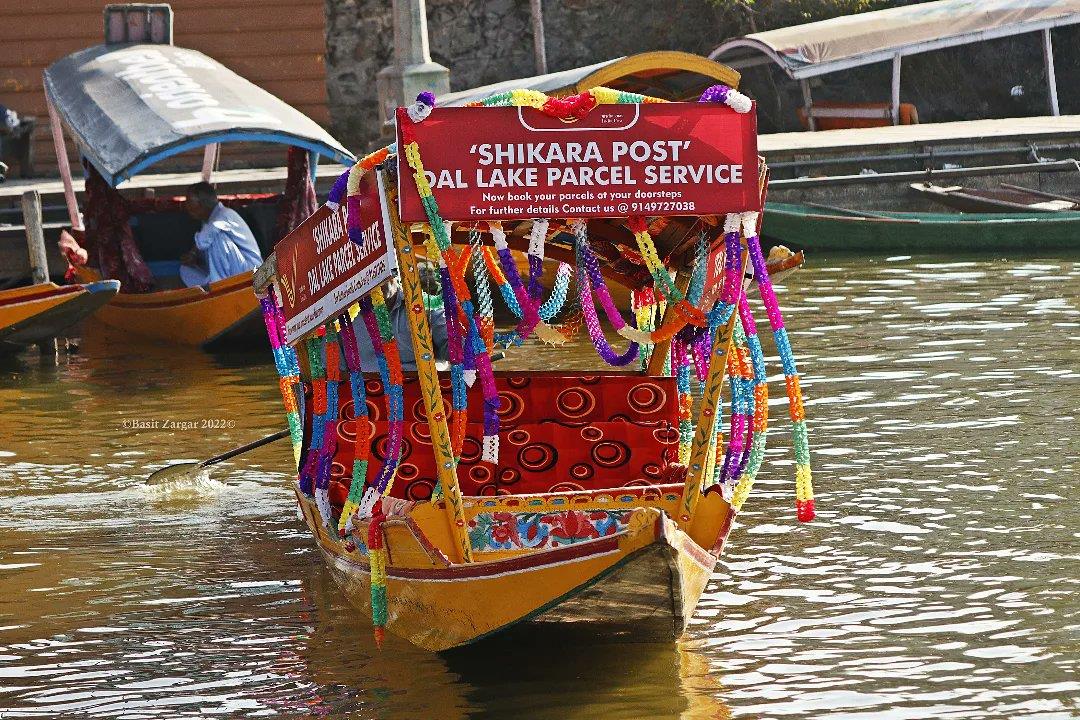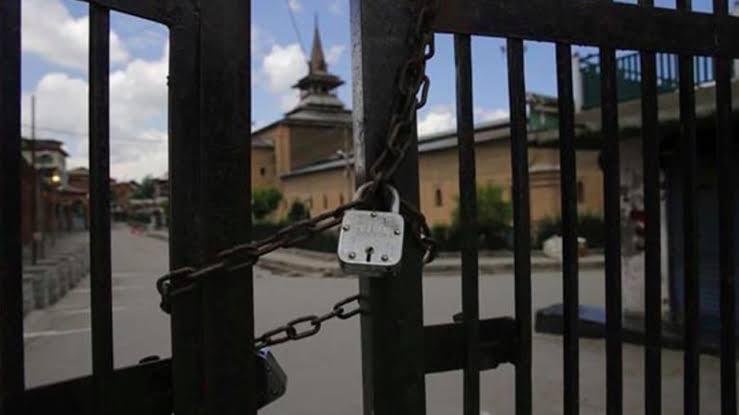From Waters to Stamps: How a Shikara Ride on Dal Lake Sparked a Lifelong Passion for Philately
By: Javid Amin | 04 October 2025
Prologue: Where Still Waters Whisper Stories
Kashmir’s Dal Lake has long been called the “Jewel in the Crown” — not just for its beauty but for its ability to reflect more than just the sky. Every ripple tells a story; every shikara, a floating poem.
One quiet autumn afternoon, amid saffron-scented breezes and the glint of fading sunlight, a traveler named Arif found himself adrift on this liquid mirror. The scene was postcard-perfect — houseboats draped in walnut wood carvings, willows kissing the water, and the faint echo of a boatman’s humming.
But what happened next would transform a fleeting moment of travel into a lifelong odyssey of collecting history—one stamp at a time.
The Envelope That Changed Everything
As the shikara rocked gently, the elderly boatman reached into his pheran pocket and handed Arif something unexpected — a small, weathered envelope.
Not a tourist brochure.
Not a receipt.
But a letter.
It was carefully stamped and sealed, the paper faintly scented of saffron and smoke.
Inside, Arif found a postcard from 1972 — an image of the very same Dal Lake they were floating upon, with shikaras gliding under a silver moon. The stamp bore the Mughal Gardens of Kashmir, an old India Post issue, slightly faded but beautifully preserved.
“Every stamp,” Arif would later write, “is a frozen moment. Every shikara ride, a moving one. Together, they tell stories that never fade.”
That was the beginning — a spark, a whisper, and a new way of seeing the world.
The First Stamp
Back in his hotel room that evening, the postcard lingered in Arif’s thoughts like an unspoken conversation. The concierge, noticing his curiosity, mentioned that the hotel kept a collection of old postcards for nostalgic travelers.
When Arif asked to see them, the attendant returned with a small wooden box — filled with postcards from the 1950s to the 1970s, each carrying a postage stamp from different eras of Kashmiri history.
Some bore the Lion Capital of Ashoka, others featured Chinar leaves, Srinagar’s Clock Tower, or even rare British India overprints.
He bought them all.
That night, under the soft hum of a heater and the scent of kahwa tea, he began cataloguing them — not just by denomination or design, but by the emotions behind each piece:
-
A letter from a soldier stationed near Kupwara to his wife in Amritsar, promising to return before spring.
-
A New Year’s card from a trader in Sopore to a business partner in Bombay, signed in elegant Urdu script.
-
A child’s postcard to a cousin in Rawalpindi — the last mail before the borders closed.
Each stamp, each smudge, carried the fingerprints of time.
From Collector to Curator
The hobby soon became a calling. Over the next decade, Arif transformed from a curious traveler into a passionate philatelist — a student of postage, printing, and postal history.
Hunting Hidden Post Offices
He began traveling to remote post offices in Gurez, Drass, Zanskar, Kupwara, and Uri, searching for forgotten cancellations, local postmarks, and archival remnants of early communications.
He met retired postmasters who still remembered hand-stamping envelopes during winter, when snow cut off the region for months. He heard stories of mail carried by pony caravans across mountain passes before roads were built.
Building the Archive
By 2015, his personal collection had crossed 5,000 unique Kashmiri stamps and covers — some dating back to the Dogra era, when the princely state issued its own revenue stamps.
One of his prized possessions was a 1948 India Post issue featuring the Chinar leaf, released shortly after Jammu and Kashmir’s accession to India. Its soft brown ink had faded, but the emotion it carried hadn’t.
Arif began digitizing his finds, collaborating with local historians to create a public digital archive — preserving not just stamps, but memories.
When Travel Meets Time
As Arif’s collection grew, so did his philosophy: Every journey leaves an imprint; every place has a postal soul.
Where others sought souvenirs, Arif sought stories mailed through time.
“Stamp Walks” in Srinagar
He began curating Stamp Walks — guided heritage tours that blended Kashmir’s landmarks with the stamps that immortalized them.
At Nishat Bagh, he’d show tourists the 1973 “Mughal Gardens” issue.
At Shankaracharya Temple, a 1985 “Sacred Sites of India” stamp.
At Lal Chowk’s Clock Tower, a 1960s Srinagar postal cancellation.
Each stop connected geography with philately — proving that travel and time are twin collectors of memory.
The Traveler’s Mindset
Philately changed how he saw travel. Airports became postal museums. Souvenir shops became archives.
He’d visit local post offices first, buying commemorative issues as tokens of presence rather than fridge magnets. To him, a stamp was the smallest possible piece of geography — and the largest symbol of belonging.
A Museum by the Lake
Years later, Arif turned his passion into a public space. By Nigeen Lake, just a few kilometers from Dal, he opened a small museum and café — half archive, half storytelling nook.
Travelers can:
-
Browse vintage Indian and Kashmiri stamps, from pre-Independence to modern commemoratives.
-
Write and post their own handwritten postcards, complete with custom “Dal Lake” cancellation marks.
-
Attend weekend philately sessions with schoolchildren and enthusiasts.
-
Design personalized souvenir stamps featuring Kashmir’s lakes, mountains, or cultural motifs.
The museum became a quiet pilgrimage spot — a place where travelers learned to look at stamps not as collectibles, but as capsules of human emotion.
“Don’t just collect souvenirs,” Arif tells his visitors.
“Collect stories. Sometimes, the smallest stamp carries the biggest one.”
The Spirit of Dal Lake Lives On
The same lake that once gave Arif a letter continues to gift stories to countless others.
Dal Lake remains a living museum of motion — shikaras gliding past houseboats, floating markets selling saffron and flowers, and children waving from the shores.
For some, it’s a romantic escape.
For others, a memory of home.
For Arif, it was a doorway to time itself — where water reflected not just mountains, but moments.
And perhaps that’s what travel truly is: an act of preservation through experience.
The Stamp and the Ripple
On his last recorded entry in his journal, Arif wrote:
“Every time I place a new stamp into my album, I hear the splash of an oar.
Every stamp is a still lake, and every journey, a ripple.”
The Dal Lake postcard that started it all still sits in his personal album — yellowed, delicate, priceless. The boatman who gave it to him has long passed away, but his gesture continues to travel, sealed inside envelopes of memory.
Author’s Note: The Harmony of Hobbies and Horizons
This story isn’t just about Arif. It’s about how travel can awaken dormant passions — how one quiet encounter can redefine how you experience the world.
You may not become a philatelist, but you might find your own “stamp moment” — maybe in a photograph, a conversation, or a song heard across water.
Dal Lake has that power. Kashmir has that poetry. And every traveler has a story waiting to be posted.
Travel Tips: If You’re Inspired by Arif’s Journey
-
Visit the General Post Office, Srinagar — established in 1880s; still issues unique cancellations.
-
Ask for commemorative issues at India Post counters — especially those depicting heritage sites.
-
Carry blank postcards and mail them from Kashmir — each will bear a dated imprint of your journey.
-
Check out philatelic bureaus in Srinagar, Delhi, or Mumbai for special editions.
-
Explore lesser-known lakes — Nigeen, Wular, or Manasbal — for tranquil travel paired with reflection.
-
Support local artisans who design Kashmiri stationery and postal memorabilia.
Why This Story Matters
In an age where instant messages vanish in seconds, a letter—inked, stamped, and sealed—remains a small act of permanence.
Arif’s story reminds us that travel isn’t just movement through space; it’s movement through meaning. And that sometimes, the truest souvenirs aren’t bought, but discovered — tucked in envelopes, folded in kindness, carried across waters.
So next time you glide across Dal Lake, look closely. You might just find a story waiting to be mailed.



